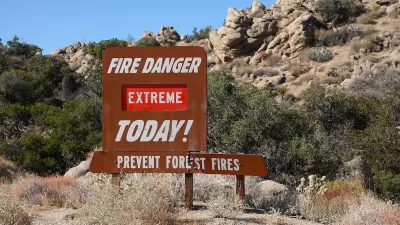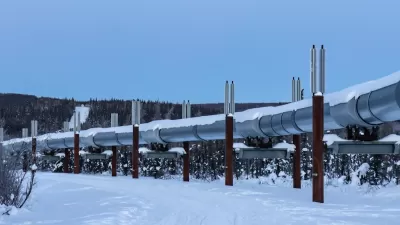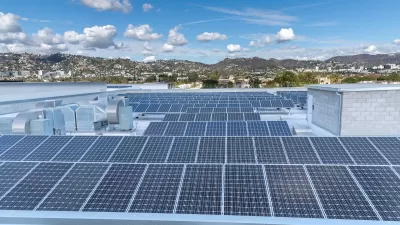Californians will determine whether to approve a $10 billion bond for climate and environmental projects, which seeks to address critical issues such as wildfire prevention, safe drinking water, and protection of disadvantaged communities.

In November, California voters will decide on a $10 billion bond aimed at funding climate and environmental projects, including those previously cut due to budget deficits. The "Safe Drinking Water, Wildfire Prevention, Drought Preparedness, and Clean Air Bond Act of 2024" (Senate Bill 867) was approved by the Senate and Assembly on the final day for ballot inclusion. The bond will finance projects for safe drinking water, drought, flood, and water resilience, wildfire and forest resilience, coastal resilience, extreme heat mitigation, biodiversity and nature-based climate solutions, climate-smart, sustainable, and resilient farms, ranches, and working lands, park creation and outdoor access, and clean air programs.
The proposed bond will be repaid with interest, potentially costing the state over $19 billion in the long term. As reported by Melody Petersen, environmental groups, renewable energy companies, labor unions, and social justice advocates heavily lobbied for this measure, emphasizing the need for robust climate action despite recent budget cuts. This bond is widely seen as crucial for mitigating the adverse impacts of climate change, which include extreme weather events, sea-level rise, and severe droughts.
A key provision of the bond requires at least 40% of the funds to benefit disadvantaged communities. However, some legislators expressed concerns that recent changes weakened this provision, potentially diverting funds from the most vulnerable populations. Additionally, hundreds of millions of dollars are earmarked for private industry, including clean energy projects like offshore wind farms, sparking debate about the allocation of these funds.
FULL STORY: $10-billion climate bond will go before voters in November

Alabama: Trump Terminates Settlements for Black Communities Harmed By Raw Sewage
Trump deemed the landmark civil rights agreement “illegal DEI and environmental justice policy.”

Study: Maui’s Plan to Convert Vacation Rentals to Long-Term Housing Could Cause Nearly $1 Billion Economic Loss
The plan would reduce visitor accommodation by 25% resulting in 1,900 jobs lost.

Planetizen Federal Action Tracker
A weekly monitor of how Trump’s orders and actions are impacting planners and planning in America.

Wind Energy on the Rise Despite Federal Policy Reversal
The Trump administration is revoking federal support for renewable energy, but demand for new projects continues unabated.

Passengers Flock to Caltrain After Electrification
The new electric trains are running faster and more reliably, leading to strong ridership growth on the Bay Area rail system.

Texas Churches Rally Behind ‘Yes in God’s Back Yard’ Legislation
Religious leaders want the state to reduce zoning regulations to streamline leasing church-owned land to housing developers.
Urban Design for Planners 1: Software Tools
This six-course series explores essential urban design concepts using open source software and equips planners with the tools they need to participate fully in the urban design process.
Planning for Universal Design
Learn the tools for implementing Universal Design in planning regulations.
Caltrans
Smith Gee Studio
Institute for Housing and Urban Development Studies (IHS)
City of Grandview
Harvard GSD Executive Education
Toledo-Lucas County Plan Commissions
Salt Lake City
NYU Wagner Graduate School of Public Service





























